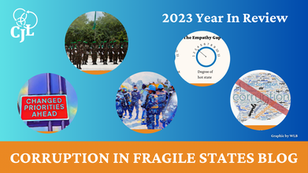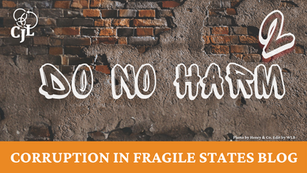

Whispers in the margins: conflict, crime and corruption at CoSP11
The reasons this critically toxic nexus receives so little attention gurgled to the fore during The Corruption and Organized Crime Across the Conflict Cycle panel –– one of the four side events (out of 125!) giving it attention at CoSP11.

Cheyanne Scharbatke-Church - CJL
Feb 117 min read


















































